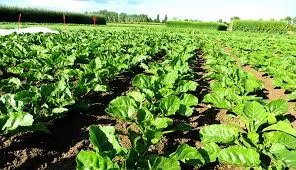Introduction
Hisar, a city located in the heart of Haryana, India, is renowned for its fertile lands and rich agricultural heritage. As the demand for sustainable and eco-friendly agricultural practices grows, farmers in Hisar are seeking innovative solutions to enhance crop productivity and soil health. In this article, we explore the significance of humic acid as a transformative agricultural input, the role of a humic acid supplier, and how its application can contribute to a greener and more prosperous future for agriculture in Hisar.
Table of Contents
- Understanding Humic Acid
- The Role of a Humic Acid Supplier
- Ensuring Quality and Authenticity
- Offering a Wide Range of Humic Acid Products
- The Benefits of Humic Acid in Agriculture
- Enhancing Soil Structure and Fertility
- Facilitating Nutrient Absorption and Release
- Improving Water Retention and Drought Resistance
- Stimulating Plant Growth and Yield
- Advancing Sustainable Agriculture with Humic Acid
- Reducing Chemical Dependency
- Promoting Soil Sustainability and Ecosystem Balance
- Nurturing Long-Term Agricultural Prosperity
- Application Methods of Humic Acid
- Soil Application
- Seed Treatment
- Foliar Spray
- Advantages of Using Humic Acid
- Optimizing Crop Yields
- Cost-Effectiveness and Environment-Friendly Farming
- Complementing Organic Farming Practices
- Conclusion
- FAQs
Understanding Humic Acid
Humic acid is an organic compound derived from the natural decomposition of plant and animal matter. Its dark color and nutrient-rich composition have earned it the nickname “black gold.”
The Role of a Humic Acid Supplier
Ensuring Quality and Authenticity
A reputable humic acid supplier in Hisar plays a crucial role in providing farmers with genuine and high-quality humic acid products. Ensuring the purity and effectiveness of the product is essential for achieving the desired agricultural outcomes.
Offering a Wide Range of Humic Acid Products
A trusted supplier offers a diverse array of humic acid products, including liquid formulations, granules, and powders. This variety empowers farmers to select the most suitable product for their specific agricultural requirements.
The Benefits of Humic Acid in Agriculture
Enhancing Soil Structure and Fertility
In Hisar, where the health of the soil directly impacts agricultural success, humic acid acts as a powerful soil conditioner, improving soil structure and fertility. It enhances aeration, water retention, and root development.
Facilitating Nutrient Absorption and Release
Humic acid acts as a natural chelating agent, binding essential nutrients in the soil and releasing them gradually to plant roots. This optimizes nutrient absorption by crops, leading to healthier and more productive plants.
Improving Water Retention and Drought Resistance
Given the region’s varying water availability, water retention is critical for sustainable agriculture. Humic acid enhances the soil’s water-holding capacity, reducing water loss through evaporation and increasing crop resilience to drought conditions.
Stimulating Plant Growth and Yield
Humic acid stimulates the production of growth-promoting hormones in plants, resulting in increased growth rates and improved overall plant yield.
Advancing Sustainable Agriculture with Humic Acid
Reducing Chemical Dependency
By incorporating humic acid into their farming practices, Hisar farmers can reduce their reliance on chemical fertilizers and pesticides, promoting more sustainable and environmentally friendly agricultural methods.
Promoting Soil Sustainability and Ecosystem Balance
Maintaining healthy soil structure is essential for long-term agricultural productivity. Humic acid improves soil aggregation, nutrient retention, and water-holding capacity, fostering soil sustainability and ecosystem balance.
Nurturing Long-Term Agricultural Prosperity
The application of humic acid promotes sustainable agriculture by ensuring the long-term productivity of agricultural lands without causing harm to the environment.
Application Methods of Humic Acid
Soil Application
Humic acid can be directly applied to the soil during land preparation or throughout the growing season to improve soil health and nutrient availability.
Seed Treatment
Treating seeds with humic acid before planting enhances germination rates and early seedling vigor, providing crops with a strong start.
Foliar Spray
Humic acid can also be applied as a foliar spray, directly to plant leaves, to provide rapid nutrient absorption and combat nutrient deficiencies.
Advantages of Using Humic Acid
Optimizing Crop Yields
The application of humic acid leads to improved crop yields due to enhanced nutrient absorption and healthier plant growth.
Cost-Effectiveness and Environment-Friendly Farming
Humic acid provides a cost-effective solution for enhancing soil fertility and promoting agricultural productivity while adhering to environmentally friendly farming practices.
Complementing Organic Farming Practices
The organic nature of humic acid makes it a valuable supplement for organic farming practices in Hisar.
Conclusion
In Hisar, the presence of a reputable humic acid supplier can catalyze a significant shift in agricultural practices. Humic acid’s role in enhancing soil health, conserving water, and promoting plant growth is pivotal for sustainable agricultural progress. By embracing humic acid in their farming practices, Hisar farmers can contribute to a greener and more prosperous future for agriculture.
FAQs
1. Is humic acid safe for organic farming in Hisar?
Yes, humic acid is a natural organic compound and is entirely safe for organic farming practices in Hisar.
2. How often should humic acid be applied to crops?
The frequency of humic acid application depends on factors like crop type, soil condition, and weather. It is often applied during land preparation and at different growth stages of the crops.
3. Can humic acid be used with chemical fertilizers?
Yes, humic acid can be used alongside chemical fertilizers to enhance their efficiency and minimize nutrient leaching.
4. Does humic acid help in drought resistance?
Yes, humic acid enhances water retention in the soil, making crops more resilient to drought conditions.




